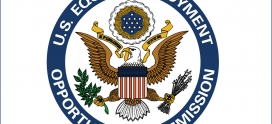Whistleblower Protections and Employment Law
In the United States we have federal and state ‘whistleblower laws,’ protections in employment law against retaliation by a workplace or employer for whistleblowing activities. These laws do not keep employers from retaliating against whistleblowers, but give whistleblowers legal redress when they are retaliated against for their disclosures.
Whistleblowing describes making information about the public safety, about illegal activities, about commerce activities that have been misrepresented, and any public disclosure of private business information that a company would prefer to keep quiet. In many instances, an employee is expected by professional standards and the law of the nation and state to take action when public safety is threatened, or a law is being broken or people are being harmed. In these circumstances, regardless of workplace policy or nondisclosure agreements, it is the legal expectation of members of society that disclosure to the proper authorities should occur.
The challenges come when the employee tries to do the right thing, and the proper authorities are uninterested; when the workplace threatens both the employee and others in the workplace; when the employee tries to correct a dangerous or illegal situation and gets blackballed by peers or set up to take the blame by an employer. Unfortunately, these are all things that have happened to whistleblowers in the past. Further complicating matters is when the whistleblowing involves the government, and materials disclosed can be said to impact national security.
Assuming that the fate of the free world is not on the line, and the issue of concern is not one of immediate public danger, there are several considerations to be thought through before acting. Carefully study any nondisclosure agreements you signed when taking the job. If the state or local government is involved, there may be ways to report anonymously. If that option is available to you, consider taking it. If you went to the supervisors or law enforcement about a problem, and received no help, make sure those interactions are carefully documented.
There may be restrictions on your legal protection against retaliation if you do not follow the chain of command in reporting. For instance, if you find a workplace safety issue, and rather than reporting to the safety manager or the unit supervisor, went straight to the newspapers, you may not be protected from retaliation, and in some cases, may be held liable for damage to a company’s reputation. Either way, however you decide to proceed, document carefully any efforts you made to work through the system. If you have to remove company materials, or use company computer time to document the whistleblowing activities, the company can take action against you. If at all possible, do not remove any company property to bolster your claims.
After the storm breaks, and you have been publically identified as the source of the news, the workplace cannot retaliate against you by demotion, firing, or other job actions that are considered punitive. If they do, you have the option of filing a civil rights action against them. Each state has unique whistleblower laws, with mechanisms for reporting retaliation; federal contractors, military, and federal government agencies also have federal systems in place.
For more information on employment law, please contact us.



